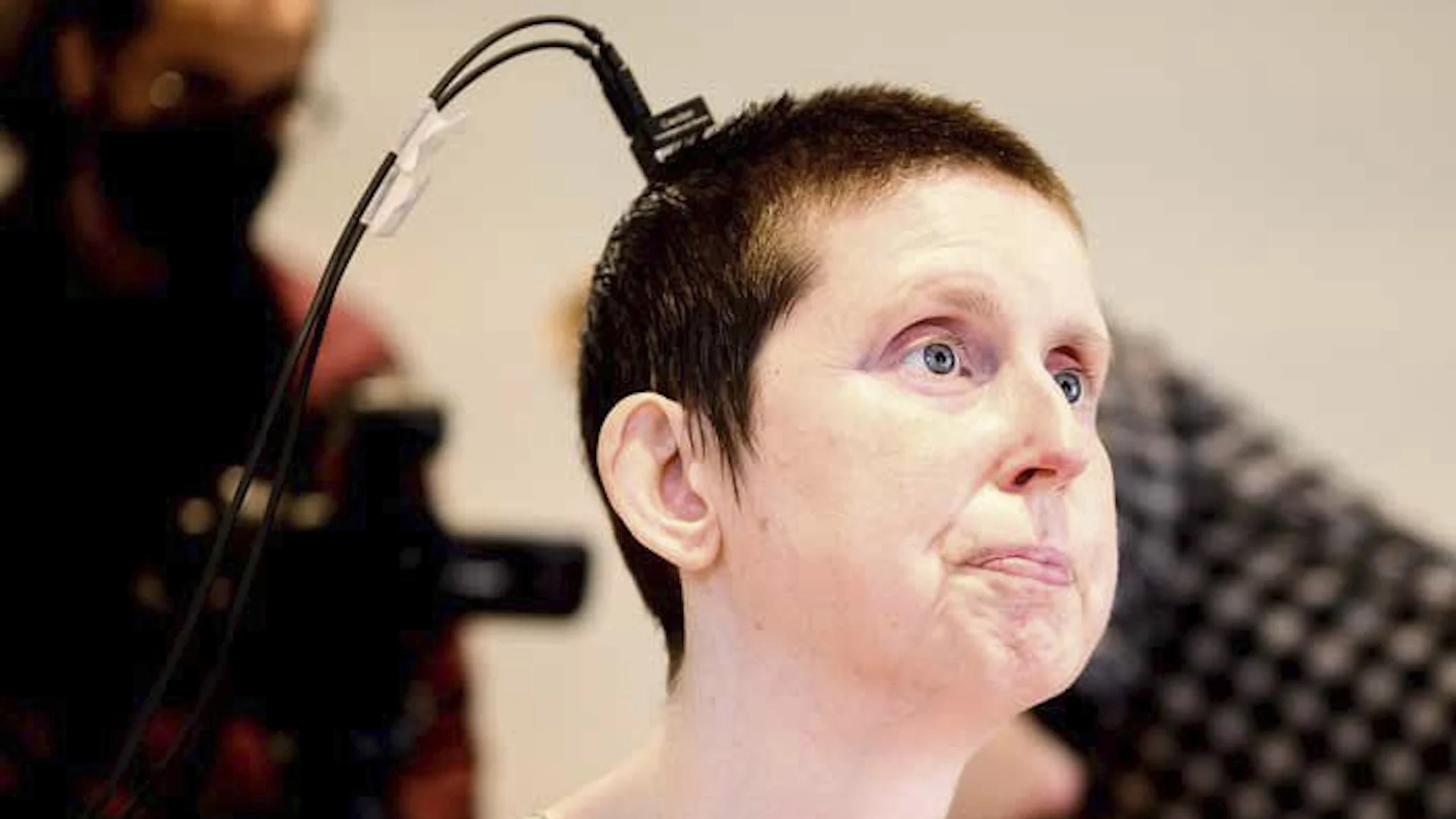
"It "converts her intent to speak into fluent sentences," said Gopala Anumanchipalli, a co-author of the study published Monday in the journal Nature Neuroscience."
"This is "a pretty big advance in our field," said Jonathan Brumberg of the Speech and Applied Neuroscience Lab at the University of Kansas, who was not part of the study."
Scientists have pioneered a brain-computer interface (BCI) that converts thoughts about speech into verbal expressions instantly. In an experimental study, a woman with quadriplegia who had not spoken for 18 years following a stroke underwent surgery where electrodes were implanted to record her neural activity while formulating sentences. The innovative system, which utilizes AI trained on her voice, produces fluent speech from her neural intent without the delays typical in existing technologies, marking a significant breakthrough in communication aids for speech-impaired individuals.
Read at Fast Company
Unable to calculate read time
Collection
[
|
...
]